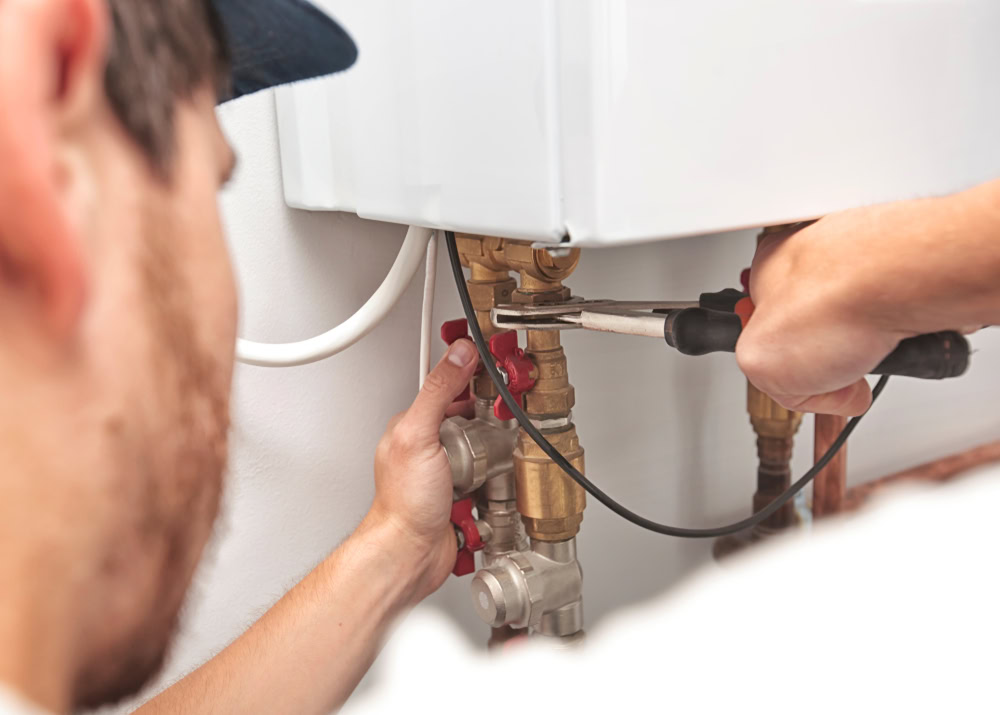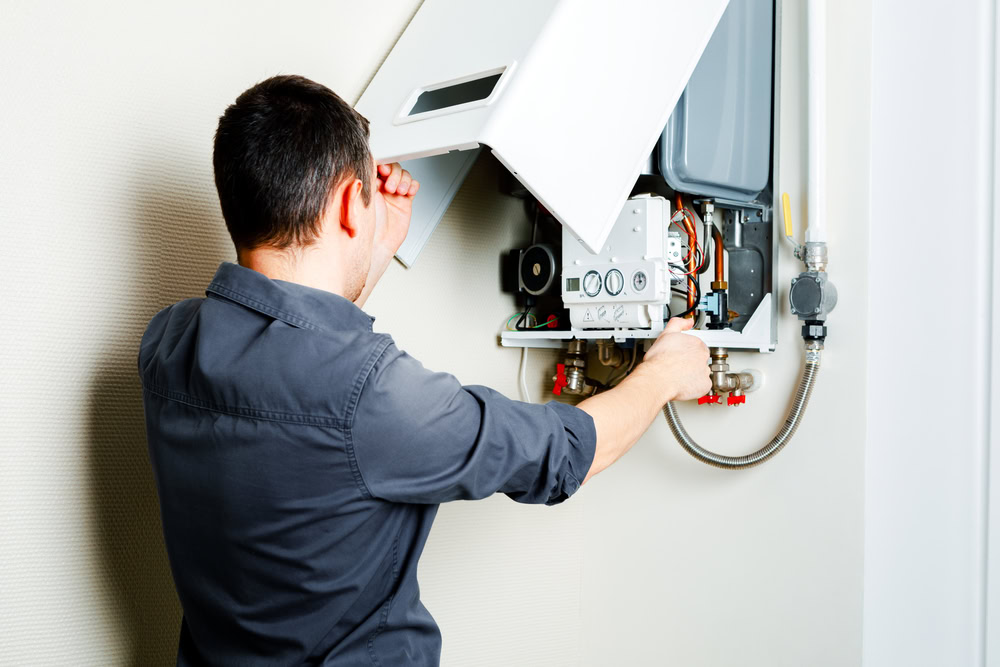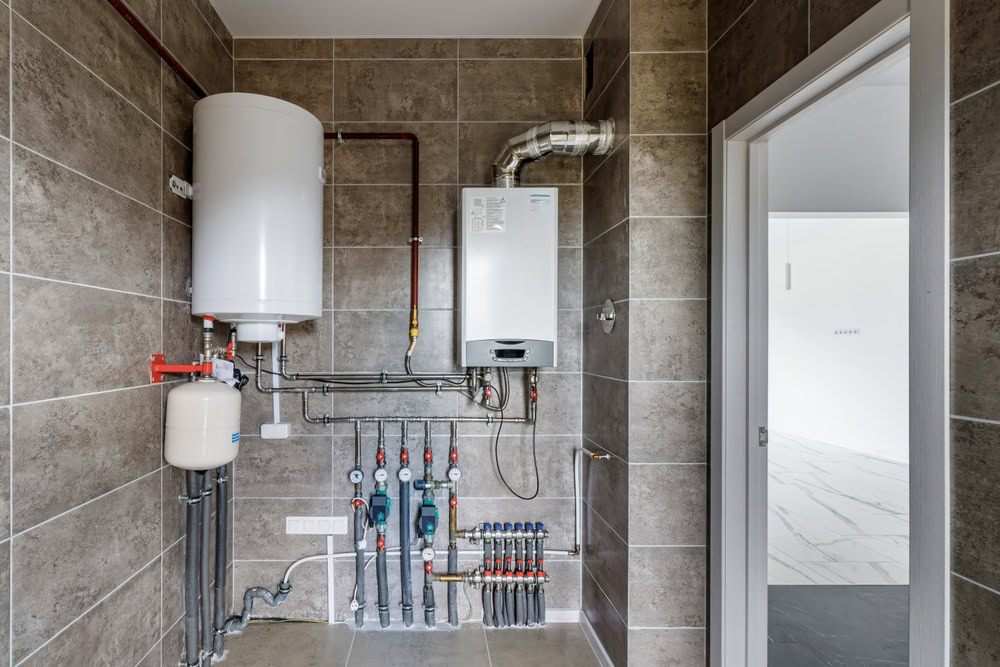Summary:
Why Seasonal Boiler Maintenance Matters More Than You Think
Your boiler sits idle for months during warmer weather, and that downtime creates problems you might not expect. Dust settles on components, seals can dry out, and small issues that were manageable last winter have had months to get worse.
Think of it like starting your car after it’s been parked for six months. You wouldn’t just turn the key and expect everything to run perfectly. Your boiler needs the same kind of attention before you ask it to heat your entire property through another New York winter.
The stakes are higher than just comfort, too. A boiler that’s struggling to operate efficiently will cost you significantly more in energy bills, and emergency boiler repair calls during peak season can be both expensive and hard to schedule.
What Happens When You Skip Pre-Season Preparation
Skipping seasonal preparation isn’t just inconvenient – it’s expensive. When boilers haven’t been properly maintained before the heating season, they’re far more likely to break down when you need them most.
Emergency boiler repair calls spike dramatically during the first few weeks of cold weather. That’s not a coincidence. It’s the direct result of systems that weren’t ready for the workload. When your boiler fails on a 20-degree night in January, you’re not just dealing with discomfort. You’re looking at potential pipe freezing, property damage, and the stress of finding available repair service when every other property owner is dealing with the same problem.
Commercial property owners face even higher stakes. Tenants without heat aren’t just uncomfortable – they have legal rights that can create serious liability issues. A boiler breakdown in a commercial building can mean lost business, emergency housing costs for tenants, and potential legal complications.
The financial impact extends beyond emergency repairs. An unprepared boiler works harder to maintain temperature, driving up energy costs throughout the entire heating season. What might have been a simple maintenance check becomes a much larger expense when small problems compound over months of operation.
Signs Your Boiler Needs Attention Before Winter
Your boiler usually gives you warning signs before it fails completely, but you have to know what to look for. Strange noises are often the first indicator something’s wrong. If you hear banging, whistling, or gurgling sounds when the system runs, those aren’t normal operating sounds.
Uneven heating is another red flag. If some rooms get warm while others stay cold, your boiler isn’t distributing heat properly. This could indicate issues with circulation pumps, blocked pipes, or problems with the heat exchanger itself.
Check your energy bills from last winter. If you noticed costs climbing without a corresponding increase in usage, your boiler was working inefficiently. That inefficiency doesn’t fix itself over the summer – it gets worse.
Visual inspection matters too. Look for any signs of water leaks around the boiler, rust on components, or corrosion around pipe connections. These issues will only worsen once you start running the system regularly. Yellow flames instead of blue flames on gas boilers indicate combustion problems that need immediate attention.
Don’t ignore pilot light issues either. If the pilot light frequently goes out or burns with an unusual color, that’s a sign of ventilation problems or gas supply issues that could become dangerous.
Essential Steps for Preparing Your Boiler System
Proper boiler preparation isn’t complicated, but it does require attention to detail. Start with a thorough visual inspection of the entire system, including all visible pipes, connections, and the boiler unit itself.
Professional boiler service should include cleaning key components, testing safety systems, and checking fuel connections. For gas boiler repair needs, this includes ensuring proper ventilation and testing for any gas leaks. Oil boiler repair preparation focuses on fuel system cleaning and burner adjustment.
The timing matters as much as the process itself. Don’t wait until you actually need heat to discover problems.
Professional Inspection vs DIY Maintenance
There’s a clear line between what you can handle yourself and what requires professional boiler service. You can check for obvious leaks, ensure vents aren’t blocked, and test your thermostat. Beyond that, you’re getting into territory that requires proper tools and expertise.
Professional boiler maintenance involves testing combustion efficiency, checking gas pressures, cleaning heat exchangers, and testing safety controls. These aren’t weekend DIY projects. They require specialized equipment and knowledge of local codes and safety requirements.
In Nassau County and Queens, boiler systems also need to meet specific local requirements. Professional technicians understand these regulations and can ensure your system stays compliant. This is particularly important for commercial properties where code violations can result in fines or forced shutdowns.
Gas boiler repair and oil boiler repair each require different expertise. Gas systems involve potential safety hazards that require licensed professionals. Oil systems need specialized cleaning and adjustment that most property owners aren’t equipped to handle properly.
Attempting complex boiler troubleshooting without proper training can actually create more problems. Modern boilers have sophisticated control systems that can be damaged by incorrect adjustments. What starts as a minor issue can become a major repair if handled incorrectly.
The cost difference between professional maintenance and emergency repair is significant. A seasonal service call costs a fraction of what you’ll pay for emergency boiler repair during peak season.
Timing Your Seasonal Boiler Service
When you schedule your boiler service matters almost as much as getting it done. The best time for seasonal preparation is late summer or early fall, before you actually need the heat but while technicians still have reasonable availability.
Waiting until the first cold snap means you’re competing with every other property owner who had the same idea. Emergency boiler repair calls flood in during those first few cold days, making it harder to get prompt service for routine maintenance.
For commercial properties, timing is even more critical. You can’t afford to have tenants without heat while you wait for available service appointments. Schedule commercial boiler repair and maintenance well in advance of heating season.
Consider your property’s specific needs when timing service calls. Older buildings with aging boiler systems might benefit from earlier attention, giving you time to address any issues that come up during inspection. Properties with oil boilers should schedule service before fuel delivery season gets busy.
Don’t forget about boiler replacement timing either. If your system is near the end of its useful life, you want to make that decision before you’re forced into emergency replacement during peak season. Boiler replacement projects take time, and you’ll have better contractor availability and pricing when you’re not dealing with an emergency.
Getting Your Nassau County or Queens Property Ready for Winter
Preparing your boiler for seasonal changes isn’t just about avoiding problems – it’s about ensuring reliable, efficient operation when you need it most. The steps we’ve covered will help you avoid those middle-of-the-night emergency calls and keep your energy costs reasonable throughout the heating season.
Remember that professional boiler service pays for itself through improved efficiency and avoided emergency repairs. Whether you need routine maintenance, boiler troubleshooting, or are considering boiler replacement, addressing these needs before peak season gives you better options and pricing.
When you’re ready to get your system prepared for the season ahead, we provide comprehensive boiler maintenance and repair throughout Nassau County and Queens.





